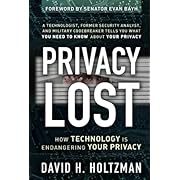 Every word is sweet and soft, a perfumed silken caress, with a slender pointed dagger behind it. She cuts so cleanly you almost can't feel it at first. By the time you realize you're bleeding, she's flouncing away, and no one else would believe it, either.
Every word is sweet and soft, a perfumed silken caress, with a slender pointed dagger behind it. She cuts so cleanly you almost can't feel it at first. By the time you realize you're bleeding, she's flouncing away, and no one else would believe it, either.She has a bevy of other ways to deflect criticism. One of her favorites is to put on airs of indignance at being judged. This one is especially popular if the objection is not to her, or her actions, but just their appropriateness to a particular situation. You're really trying to oppress her. Any criticism of anything she does or says is never actually what it says it is; it's simply a symptom of your personal, and irrational, dislike of her. She never actually answers any comment, criticism, or accusation. Never. She may respond, she will certainly speak afterwards, but she will never actually answer.
All of this should be of little import, because it seems like such an obvious ploy, such an obvious strategy. And such an easily recognizable pattern to anyone who looks for it for the tiniest amount of time. It oozes, after all, from everything she says. She thinks she's very very clever to have invented it; she's positively smug, smirking all the time. You want to laugh at her for being so proud of inventing something so obvious and so recognizable.
But... somehow, almost everyone doesn't recognize it. Doesn't realize it. Falls prey to it, over and over. So much so, that anyone who does recognize it and tries to say something gets not only ignored but marginalized. They get seen as the troublemaker for complaining about such petty matters, in the eyes of all the people who fall for it.
I wish there were a nice simple name you could use for this kind of person. Something along the lines of "passive-aggressive" or "anal-retentive", something that sums up the whole pattern of behavior and thus makes it more readily recognizable. But if there is one, I don't know what it is. But most of all I wish more people would learn to recognize this pattern. It's depressing that such a simple and obvious tactic works so darned well.
 Apparently, there's some confusion on this point, so, as a public service, I'm here to settle the matter.
Apparently, there's some confusion on this point, so, as a public service, I'm here to settle the matter. However, the word "hell" has become genericized by use, and now has senses which do not allude to that particular bit of our culture. The only connection between the word hell in the phrase "I had a hell of a time" and the Christian concept of Hell is a very indirect connection, one rooted in etymology. (Most idioms started as metaphors or similes, but eventually through repeated use came to mean directly what they had formerly meant only by indirection through that metaphor or simile. Thus, the original metaphor is nothing more than an etymology.)
However, the word "hell" has become genericized by use, and now has senses which do not allude to that particular bit of our culture. The only connection between the word hell in the phrase "I had a hell of a time" and the Christian concept of Hell is a very indirect connection, one rooted in etymology. (Most idioms started as metaphors or similes, but eventually through repeated use came to mean directly what they had formerly meant only by indirection through that metaphor or simile. Thus, the original metaphor is nothing more than an etymology.)


















 RealTime and RTC
RealTime and RTC Prism
Prism Uncreated
Uncreated Bloodweavers
Bloodweavers Foulspawner's Legacy
Foulspawner's Legacy Lusternia
Lusternia